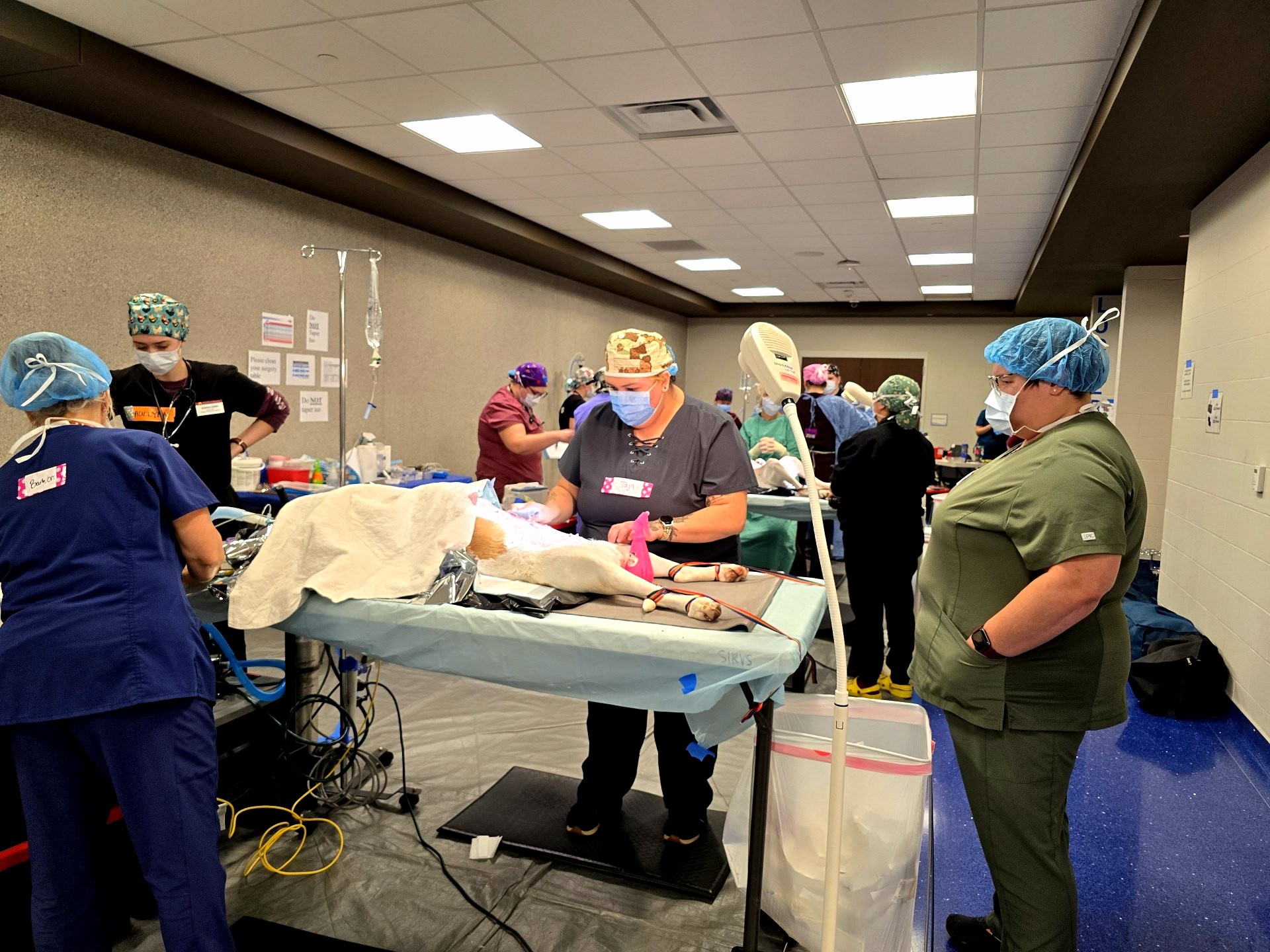A student, alumni and faculty member from the Minnesota North Veterinary Technician program volunteered for a free vet clinic on the Mille Lacs Band of Ojibwe reservation in central Minnesota. They joined veterinary volunteers from around the state in providing spay and neutering services for pets and rescue animals.
The event, which took place Nov. 9-10, was sponsored by the University of Minnesota’s Student Initiative for Reservation Veterinary Services (SIRVS) and The Bond Between, organizations that serve tribal communities and their animals around the state.
Monte Fronk has been with the Mille Lacs Band Tribal Police department since 1990 and is now the emergency management director. Overpopulation of stray dogs is a big problem on many reservations, and he wanted to address the problem at Mille Lacs.
“Our traditions and stories tell us that as Ojibwa people we are related to everything around us, especially the four-legged,” said Fronk. “When you have to put dogs down for no reason except that a disease that is spreading through no fault of their own, that has to change.”
Fifteen years ago, Fronk worked with students at the U of M to start the free clinics. It took time for the community to build trust with the SIRVS group, but the results made a difference. This year, Fronk invited the Minnesota North vet tech program to take part.
Program graduate Kayla Plucinski, now a certified veterinary assistant, worked on the project, supervising current student Taja Miller.
“It was intense and fast paced,” said Miller. “As soon as we finished one task we were immediately onto the next. There were so many people working together. Communication with your team members was essential to keep the work flow going.”
Miller got to practice skills like intramuscular injections, venipuncture, vaccine administration, ear cytology and blood tests. She also got to watch surgeries for the first time while learning more about monitoring anesthesia.
“These events are ways we can get our students more hands-on practicing of their skills as well as giving back to indigenous communities in the state,” said Leslie Clapper-Rentz, program leader.
Fronk is an alumni of Vermilion Community College, who is glad to build new relationships with Minnesota North today.
“I was a scared kid off the Rez who didn’t know what to do,” said Fronk. “What Vermilion gave me, I couldn’t have done it without them. Ojibwa people believe things happen for a reason, and I believe that I was there for a reason.”
Fronk said he hopes that Minnesota North comes back to future clinics at Mille Lacs and builds relationships with other tribal communities in the region.







